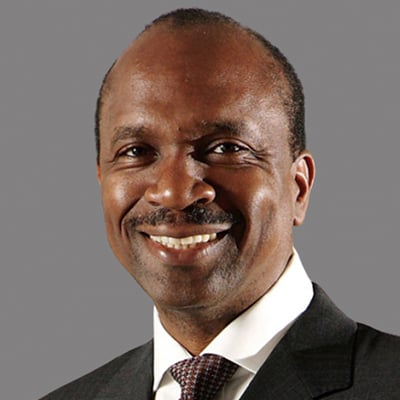Michael Jones' Crowning Achievement at Kirkland Is Part of the Long March Toward Equality
Law firms nationwide pledged to work on issues of racial justice and equality in the wake of George Floyd’s murder last year. But for more than a decade now, a team at Kirkland & Ellis led by Michael Jones, the firm’s first Black partner, has been handling a landmark case in Maryland federal court with those aims in mind.
Jones and Kirkland have worked alongside the Lawyers’ Committee for Civil Rights Under the Law since 2009 on behalf of a coalition of students, alumni and faculty at four historically Black colleges and universities, or HBCUs, in Maryland seeking to hold the state accountable for the second-class treatment the schools have received when it comes to programming and funding. The effort was a personal one for Jones, who himself is chairman of the board of trustees at his alma mater, Dillard University, an HBCU in New Orleans.
“His understanding and commitment to the historically Black colleges made him a perfect fit for this case,” says Earl Richardson, a member of the plaintiff coalition and retired president of Morgan State University in Baltimore, one of the four Maryland HBCUs. “He is a skilled litigator, a brilliant lawyer. But he also had that reservoir of knowledge about Black colleges. He understood it.Jones and Kirkland were also committed for the long haul. Neither, though, expected quite this long of a haul.
The legal fight has involved two separate seven-week trials, one on liability, for which the state brought in outside counsel from Venable, and another on remedies, for which the state was represented by Zuckerman Spaeder. The trials were sandwiched around a trip to the U.S. Court of Appeals for the Fourth Circuit on liability issues. At every step in the litigation, alumni and backers of the schools packed courtrooms to demonstrate the community’s support for the case and the cause.
Outside the courtroom, there were three legislative hearings and five rounds of mediation. During the course of the litigation, the plaintiffs proved that Maryland’s traditionally majority-white schools intentionally duplicated the programs at the state’s four HBCUs—Morgan State, Bowie State University, Coppin State University and the University of Maryland, Eastern Shore.
Richardson says the length and ferocity of the court fight are “perfectly consistent with the history of racism and race in America.”
“I would not ever admit this during the process of the trial, but I anticipated that they would try everything to get around this. Because, after all, this is a confirmation of what the historically Black colleges have said for many many decades,” Richardson says.
Alongside the courtroom fight, Jones and his team also worked the case in the court of public opinion. After an earlier settlement offer in the low nine digits was leaked to the media before it was formally offered to the plaintiffs, Jones and his team laid out the case for a settlement of more than $500 million in a letter to legislators that was likewise picked up in the press.
“What ended up happening to them is that they were no longer able to hide behind the fog of what happens in court that people don’t fully understand,” Jones says.
This May, after an extensive education and lobbying campaign aimed at state legislators, a federal judge in Maryland signed off on a $577 million settlement the state reached with the plaintiffs. The irony that both the attorney general and governor praised the settlement after the state fought the case for so long wasn’t lost on Jones.
“Just like they fought the Brown [v. Board of Education] decision for 15 or 16 years and ultimately turned around and embraced it, now that’s what they did in our case. I got quite a kick out of that,” he says.
The settlement will fund faculty positions and allow the four HBCUs to offer unique academic programs, in part by adding 10 new positions to the state’s program approval staff, a move that will make it easier for the HBCUs to get sign-off on new programs and expand existing ones. The deal also will allow the HBCUs to expand their online programs, working with the University of Maryland Global Campus.
Kirkland lawyers and staff put in more than 38,000 hours on the case over the past dozen-plus years. The firm plans to donate its $12.5 million in fees from the settlement to HBCU causes. And the work may reach further still. Jones says HBCUs from a handful of other states have reached out to have preliminary discussions about possibly pursuing similar actions.
“We’ve been in discussions with people who are interested in exploring whether there is some kind of larger claim to be made on behalf of all HBCUs, both public and private,” Jones says. “We’re prepared to commit to another 12 or 13 years, but I think we’ve learned enough lessons that if we do this again, it won’t take as long.”
Jones adds that he considers this case to be the “crowning achievement” of his career. It has the added benefit of being a case that his three adult children want to discuss when they get together, especially since two of them also have direct ties HBCUs. One of his two daughters graduated from Spelman College, an HBCU in Atlanta, and his son is a student at Morehouse College, also in Atlanta.


